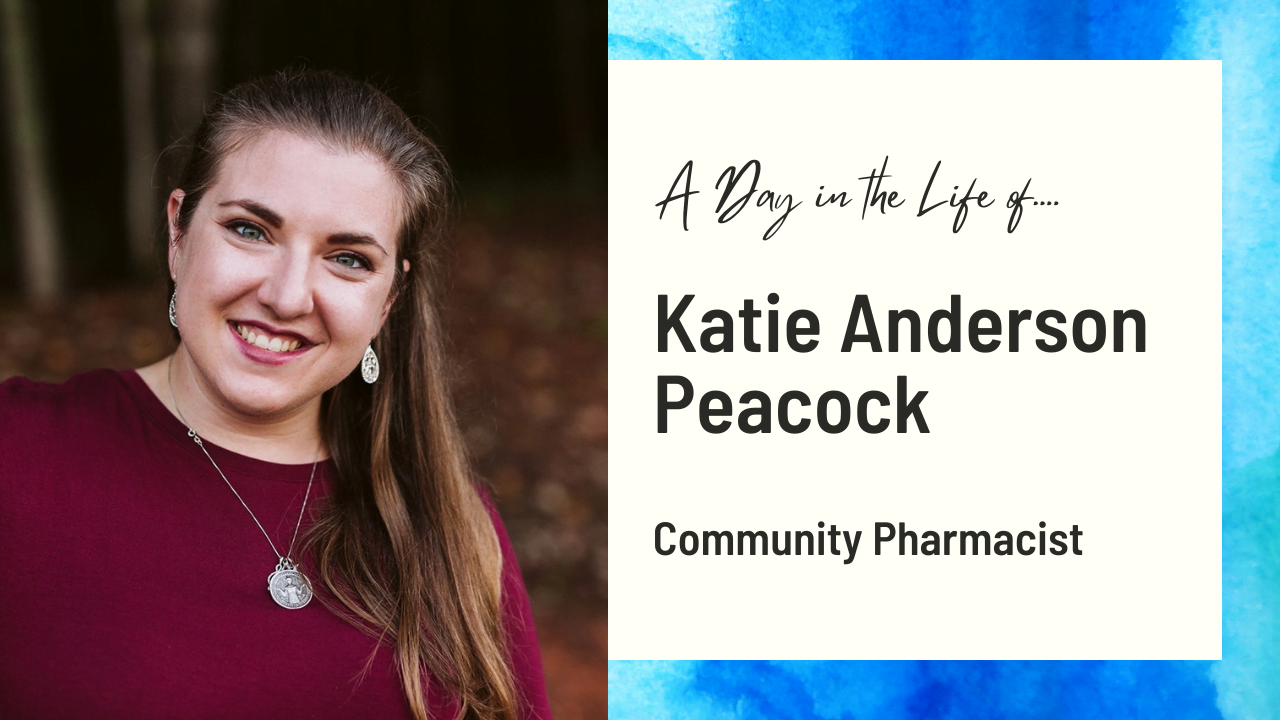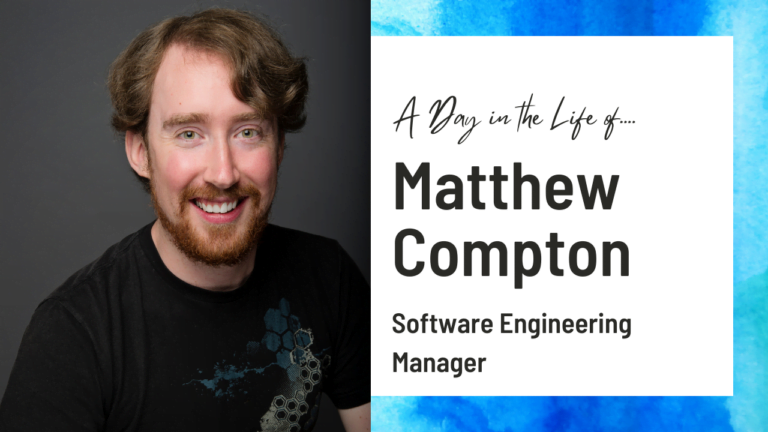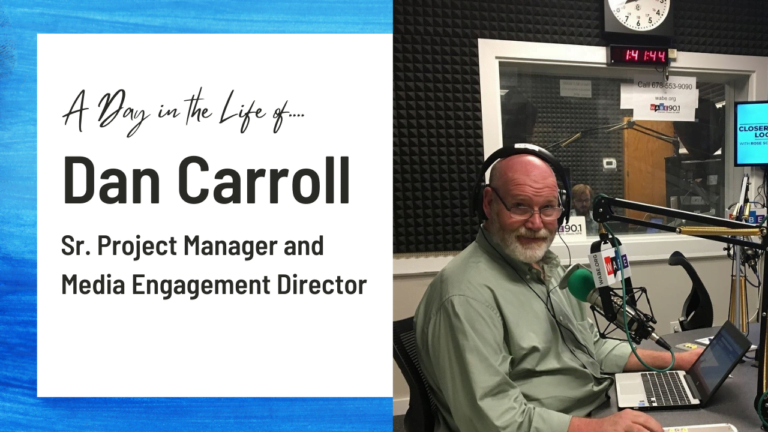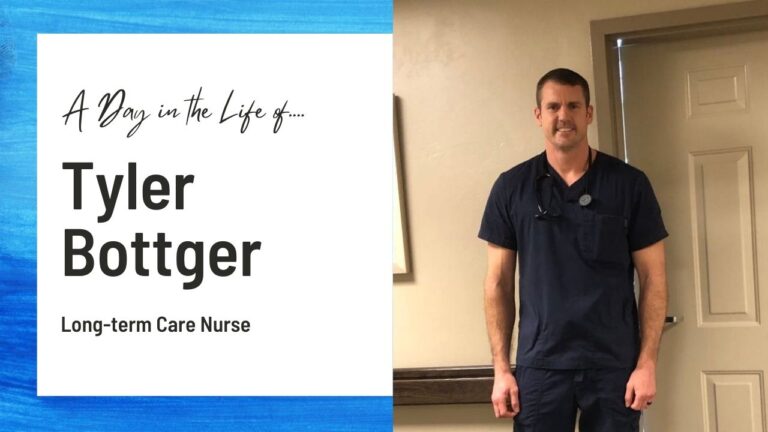Should you become a pharmacist? with Katie Anderson Peacock
When Katie Anderson Peacock was growing up, she observed her grandmother seemingly become sunburned while sitting in the kitchen. As someone with an interest in science, she wanted to understand how this was possible. When it turned out the “sunburn” was caused by her grandmother’s medication, Katie wondered, “Whose job is it to make sure people understand the medicines that they take?” The answer to that question is what led her on the path to earning her PharmD and becoming a community pharmacist.
When asked to describe what a typical day in the life is like for her, Katie explains that no two days at work are ever exactly the same. However, one thing is always true–she leaves work each day knowing she’s made a difference. In fact, Katie sees her role as being the person someone can lean on to help them through understanding their medications and the changes they can make to live healthier. Part of her job is to make sure a patient’s life is as easy as
Should you become a pharmacist? with Katie Anderson Peacock
When Katie Anderson Peacock was growing up, she observed her grandmother seemingly become sunburned while sitting in the kitchen.
As someone with an interest in science, she wanted to understand how this was possible.
When it turned out the “sunburn” was caused by her grandmother’s medication, Katie wondered, “Whose job is it to make sure people understand the medicines that they take?”
The answer to that question is what led her on the path to earning her PharmD and becoming a community pharmacist.
When asked to describe what a typical day in her life is like, Katie explains that no two days at work are ever exactly the same.
However, one thing is always true–she leaves work each day knowing she’s made a difference.
In fact, Katie sees her role as being the person someone can lean on to help them through understanding their medications and the changes they can make to live healthier. Part of her job is to make sure a patient’s life is as easy as possible, and to make sure their medication isn’t taking over their life, but supporting it.
On days she is not working, Katie enjoys spending time with her sister and gardening.
Recently married to someone she’s known for almost twenty years, Katie feels fortunate to have both sets of parents so close to home.
Even in her down time, Katie enjoys educating people about the role of pharmacists, and the importance of preventative vaccines and medications–especially during Covid.
In this blog, we’ll explore Katie’s background, the different types of pharmacists, and who this career field is best suited for.
Background
It all started with a sunburn.
This mysterious sunburn, which seemingly came out of nowhere, prompted Katie into detective mode where she discovered the not-so-innocent sunburn was actually a medication reaction.
Smart kid.
Katie now knew what career she wanted to pursue.
This isn’t to say she didn’t have her doubts about whether or not the decision she was making made sense. It’s normal to have apprehensions, especially about such a big decision.
In her senior year of college while shadowing in the field, she grappled with her own hesitations.
However, Katie believes at her core though that when what you’re pursuing aligns with who you are and what you’re passionate about, it’s a worthy endeavor.
She knew what she was doing was worthwhile and it was a virtuous field.
Nowadays, Katie works as a pharmacist and uses her expertise to ensure that prescriptions make sense for each patient – and that patients understand what they’re taking.
On most days, you’ll likely find Katie behind a counter in a white coat, hard at work ensuring the people of her community are getting the care they need.
She makes sure prescriptions are filled accurately, battles insurance companies, and even offers patients guidance on their individual situations.
She loves what she does and makes an impact every day.
She’s the pharmacist who’s got your back and offers solutions with a warm smile and a listening ear, long after the doctor’s office is closed – That’s what they’re there for anyways.

When Katie can find the time, she enjoys going on hikes with her sister. She’s a big fan of gardening too, even though she’s still learning the ropes.
Katie finds herself entertaining thoughts of a career in academia where she can teach others and make a broader impact.
When it comes to being a pharmacist, one has a variety of fields to choose from. We’ll discuss who is best suited for a pharmacy tech job and what sort of positions are available below.
Should you become a pharmacist?
Should you take the plunge and become a pharmacist? Let’s dive into some considerations below
Pharmacists have a passion for science and care
First off, an internal spark for science and a genuine interest in the welfare of others are must-haves if you’re considering becoming a pharmacist.
Remember, pharmacists don’t just fulfill drug prescriptions.
They’re the people behind the counter deciphering fulfillment requests, correcting mistakes, and counseling patients on proper use of their medication.
Pharmacists hold doctorates
Becoming a pharmacist is no walk in the park.
It requires dedication, time, and commitment.
A Doctor of Pharmacy (PharmD) program typically spans several years and demands a solid grounding in biology, chemistry, and pharmaceutical sciences.
It’s an academic challenge, to be sure.
Pharmacists are good at problem-solving
Pharmacy isn’t just about dispensing pills.
It’s a profession that requires a keen eye and the ability to identify any potential issues in prescriptions as they come in.
Does the medication being prescribed make sense for the individual’s patient history?
Does the dose look right?
Strong analytical and problem-solving skills are crucial as a pharmacist.
Pharmacists and work-life balance
Being a pharmacy tech requires the ability to multitask and work busy days – One must balance the demands of processing medications, counseling patients, and sometimes stepping beyond the counter to advise on over-the-counter remedies.
You’ve got to have people skills, and be ready to possibly work 12+ hour days.
Pharmacists make a difference

Photo by Anna Shvets
If you’re eager to make a difference every day, keep in mind that pharmacists really do make meaningful impacts in the lives of others.
Katie knows she is making a real difference every day when she leaves the office.
Whether it’s through ensuring proper medication usage, preventing adverse reactions, or being a trusted community healthcare advisor, pharmacists have the power to positively influence countless lives.
So, should you become a pharmacist? If you’re technical and care about people (a lot), it might just be the perfect fit for you.
The 7 types of pharmacists
Did you know there was more than one type of pharmacist? You know, besides the friendly person in the white coat who helps you at CVS?
Let’s discuss some different roles in the field below.
Community pharmacists
If you’re like Katie and love the idea of directly interacting with patients, you’d do well as a community pharmacist.
In case you didn’t know, community pharmacists are your go-to experts for prescription medications, over-the-counter remedies, and health-related advice.
These pharmacists counsel patients on medication usage, potential side effects, and interactions.
They often develop long-term relationships with regular visitors to the pharmacy.

Photo by Jose Ismael Espinola
Hospital pharmacists
Hospital pharmacists are the people behind the scenes that ensure patients receive the right medications at the right time and dosage.
Their responsibilities span from managing medication therapies for inpatients to collaborating with healthcare teams to provide optimal care.
Hospital pharmacists are instrumental in reviewing prescriptions, checking for any possible interactions, and tailoring drug regimens to individual patient needs. They work closely with doctors and nurses.
If you like working in a fast-paced environment and enjoy being part of a multidisciplinary team, consider working at a hospital pharmacy. To succeed in this role, you need strong clinical knowledge and the ability to navigate diverse situations, from emergency cases to ongoing chronic conditions.
Clinical pharmacists
Clinical pharmacists work collaboratively with healthcare teams and contribute their specialized knowledge to optimize medication therapies for individual patients.
These professionals excel in conducting thorough medication reviews, evaluating treatment plans, and providing personalized recommendations to healthcare providers.
Their role extends beyond simply dispensing medications; they actively participate in patient rounds, offer drug therapy consultations, and ensure that the prescribed medications align with patient needs and safety.
In this role, effective communication and strong analytical skills is key as clinical pharmacists liaise between patients, doctors, nurses, and other healthcare professionals to ensure comprehensive and coordinated care.
Pharmaceutical pharmacists
Pharmaceutical pharmacists help develop the drugs that get prescribed by medical professionals.

Photo by Artem Podrez
From research and development to production and distribution, pharmaceutical pharmacists work in laboratories creating and testing new medications.
They’re the ones conducting trials and testing for safety and quality control before a new drug ever hits the market.
If you want to make an impact in the world of public health, being a pharmaceutical pharmacist isn’t a bad way to go.
Academic pharmacists
Academic pharmacists conduct research and mentor future pharmacists.
Courses delivered by academic pharmacists discuss pharmacology, therapeutics, pharmacy law and ethics.
In short, these are the people who teach you how to be a pharmacist.
If you like the idea of mentoring others, consider pursuing academic pharmacy.
Managed care pharmacists
Managed care pharmacists work within managed care organizations, insurance companies, or healthcare systems.
Their primary focus revolves around ensuring cost-effective yet high-quality medication therapies for patients.
Managed care pharmacists review medication regimens, assess drug utilization patterns, and develop formulas to guide healthcare providers in prescribing the most effective and economical medications.
They collaborate closely with healthcare teams, including physicians and insurance providers, to streamline medication plans and promote evidence-based, value-driven care.
This role is well-suited for individuals with a keen eye for healthcare economics and a strong grasp of clinical pharmacy.
Managed care pharmacists need excellent analytical skills to evaluate medication trends and identify opportunities for improvement in patient care.
Nuclear pharmacist
Nuclear pharmacists work within a highly specialized field – We’re talking nuclear stuff, hence the name.
Radioactive materials used in diagnostic imaging and treatment procedures like PET scans are among the things a nuclear pharmacist works with.
Nuclear pharmacists are responsible for compounding, dispensing, and handling radioactive drugs with precision.
They collaborate with physicians to ensure patient radiopharmaceutical doses are correct and safe.
Final thoughts
The pharmaceutical industry is a fast-paced field with no intention of slowing down anytime soon.
It’s important to understand and acknowledge the roles of pharmacists. That is, to empower physicians and patients with clarity when needed and quality care.
From community pharmacists to clinical specialists, each type of pharmacist does their part to make lives a little bit easier everyday.







